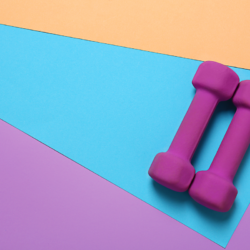When it comes to managing muscle pain, over-the-counter muscle relaxants offer a valuable solution for relieving tension without the need for prior medical consultation. These products are specially formulated to ease spasms and relax tense muscles, making it possible to improve mobility and significantly reduce pain. By providing direct and immediate access to relief, they play a crucial role in the treatment of occasional or chronic muscle pain, helping to improve users’ quality of life. Their judicious use can help prevent prolonged pain and avoid complications associated with repeated or prolonged muscle tension. This article explores the types of muscle relaxants available without a prescription, their safe use, and natural alternatives for managing muscle tension.
What are the different types of muscle tension?
Muscle tension can manifest itself in different forms, each with its own characteristics and requiring a specific approach for effective treatment. Understanding the distinction between acute and chronic tension is crucial to choosing the right muscle relaxant.
Acute tension
Acute muscle tension usually occurs suddenly and is often the result of trauma, such as a wrong movement, a fall, or intense and unusual physical effort. These strains are characterised by a sharp pain that can significantly restrict movement and require immediate relief.
To effectively manage acute strains, over-the-counter muscle relaxants can be used in addition to rest, ice to reduce inflammation, and elevation of the affected area to reduce swelling. It is advisable to consult a healthcare professional if pain persists or is accompanied by signs of severity, such as visible deformities or an inability to use the muscle concerned.
Chronic tension
Unlike acute strains, chronic strains develop over a prolonged period and are often linked to factors such as poor posture, repetitive movements or continuous overuse. These strains are generally less intense but more persistent, and can contribute to a feeling of constant muscle stiffness or fatigue.
Managing chronic strains involves a more holistic approach, including the use of muscle relaxants to facilitate muscle relaxation, adopting better postures, and modifying exercise routines to avoid the recurrence of strains. Techniques such as physiotherapy, regular stretching and muscle strengthening can also play a crucial role in treating chronic tension.
Common causes of muscle tension
Muscle tension can result from a variety of factors. Among the most common are stress and anxiety, poor posture and excessive physical activity. Each of these can contribute significantly to the onset of muscle pain, sometimes necessitating the use of muscle relaxants to relieve symptoms.
Stress and anxiety
Stress and anxiety are among the main causes of muscle tension, particularly in areas such as the neck, shoulders and upper back. These tensions are often due to continuous muscular contraction, a physiological reaction to psychological stress. In these cases, the muscles do not return to their natural state of relaxation, leading to an accumulation of tension and muscular fatigue.
To counter the effects of stress and anxiety, it is advisable to incorporate relaxation practices such as meditation, yoga or deep breathing exercises. These techniques help to reduce overall stress levels, facilitating muscle relaxation and reducing the need for muscle relaxants.
Poor posture
Poor posture, particularly common in people who spend long hours sitting, can put excessive pressure on certain muscles and joints. This is often seen in computer users, where prolonged sitting in front of a screen can lead to increased tension in the neck, shoulders and back.
Adopting proper work ergonomics is essential to prevent strain due to poor posture. This includes using chairs that properly support the back, positioning the screen at eye level, and taking regular breaks to change position and perform gentle stretches, which can help reduce dependency on muscle relaxants.
Excessive physical activity
Although physical exercise is beneficial to general health, excessive or poorly performed physical activity can also be a source of muscular tension. Sports that require repetitive movements or intense effort can particularly lead to acute or even chronic strain if there are insufficient periods of rest and recovery.
To minimise the risk of tension caused by excessive physical activity, it is advisable to always carry out appropriate warm-ups before activity and cool-down periods afterwards. Alternating the types of physical activity and listening to your body are crucial to avoid muscular overload and the excessive use of muscle relaxants.
Over-the-counter muscle relaxants
Over-the-counter muscle relaxants offer a valuable alternative for managing mild to moderate muscle tension. In France, several supplements are available on the market, specially designed to help relieve pain without the need for a doctor’s prescription.
What are the best over-the-counter muscle relaxants?
Here are some of the most popular over-the-counter muscle relaxants, each containing specific formulations to reduce muscle spasm and improve muscle comfort:
- Granions Muscle Relaxer Strength 20 Tablets: This supplement is formulated to help reduce muscle tension and promote recovery after physical exertion. It contains ingredients such as magnesium, which plays a crucial role in muscle relaxation.
- Eric Favre Myo D Muscle Relaxation 30 Tablets: Specially designed for athletes, this product helps to prevent and relieve cramp and muscle fatigue. It combines a number of essential vitamins and minerals that contribute to healthy muscle function.
- Nutreov Myogesic 30 Tablets: This dietary supplement is designed to relieve muscle and joint pain thanks to its composition rich in curcumin and boswellia, two powerful natural anti-inflammatories.
- Forté Pharma Forte Flex Flash 20 Tablets: This product helps relax muscles and reduce feelings of stiffness thanks to its formula enriched with potassium and magnesium, essential for healthy muscle function.
- SynActifs Myoactifs Muscle Relaxant 30 capsules: Enriched with plant extracts and magnesium, this muscle relaxant helps to reduce muscle tension and promote a general feeling of well-being.
Mechanism of action
The mechanisms of action of these over-the-counter muscle relaxants vary according to their composition. Typically, they work in two main ways:
- Supply of minerals and vitamins: Many of these supplements supply essential nutrients, such as magnesium and potassium, which are vital for normal muscle contraction and relaxation. These elements help stabilise electrolyte levels in the body, which can prevent cramps and spasms.
- Anti-inflammatory action: Some products contain ingredients with natural anti-inflammatory properties, such as curcumin or boswellia. These substances help to reduce inflammation around tense and aching muscles, facilitating faster recovery and less pain.
Using over-the-counter muscle relaxants can be an effective way of managing muscle tension without resorting to prescription drugs. These products, available in the form of food supplements, offer a practical solution for those looking to relieve muscle pain thanks to natural active ingredients and essential nutrients. However, it is advisable to consult a healthcare professional before starting any new treatment, especially if you have pre-existing medical conditions.
Natural alternatives to muscle relaxants
As well as over-the-counter muscle relaxants, there are natural alternatives that can help relieve muscle tension. These include physical methods such as massage and stretching, as well as the use of natural supplements such as magnesium and CBD. These approaches can be particularly beneficial for those looking for solutions that are less invasive or complementary to traditional medication.
Physical methods
- Massage: Massage is an effective technique for reducing muscle tension and improving blood circulation in affected areas. It helps to relax tense muscles and promote a state of general relaxation. Specific techniques, such as deep tissue massage or trigger point therapy, can be particularly useful for localised and persistent pain.
- Stretching: Regular stretching exercises can prevent and reduce muscle tension. Stretching helps to maintain muscle flexibility, reduce stiffness and improve range of motion. Targeted stretching routines after exercise or at the end of the day can be very beneficial for people suffering from chronic tension.
Natural food supplements for relaxation
The role of magnesium in muscle contraction
Magnesium is an essential mineral which has a significant influence on muscle contraction and relaxation. Its presence is essential for the transmission of nerve impulses at neuromuscular junctions, contributing to the activation of muscle fibres. Consequently, an adequate intake of magnesium is fundamental to maintaining optimal muscle function.
Prevention of muscle cramps
Muscle cramps are often associated with an electrolyte imbalance, in particular a magnesium deficiency. This mineral plays a crucial role in regulating the membrane ion channels involved in muscle contraction. Consequently, insufficient magnesium intake can promote neuromuscular hyperexcitability, increasing the risk of muscle cramps. Magnesium supplements may therefore be recommended to prevent these unpleasant episodes, particularly in individuals subject to intense physical activity or exposed to demanding environmental conditions.
Reduced muscle tension
Chronic muscular tension can result from a variety of factors, including stress, intense physical activity and electrolyte imbalances. Magnesium plays a role in muscle relaxation by antagonising calcium, another ion involved in muscle contraction. By increasing the availability of magnesium, it is possible to promote adequate muscle relaxation, thereby reducing feelings of stiffness and tension. People suffering from recurrent muscular tension can therefore benefit from magnesium supplements to alleviate these symptoms and improve their physical comfort.
The analgesic and anti-inflammatory properties of cbd
CBD (Cannabidiol) is a compound derived from cannabis that is attracting growing interest for its analgesic and anti-inflammatory properties. Unlike THC (tetrahydrocannabinol), another compound found in cannabis, CBD has no psychoactive effects, making it attractive for medical use.
Relief from muscular pain
Muscle pain can result from a variety of causes, such as intense physical exertion, injury or inflammatory medical conditions. CBD works by interacting with the body’s endocannabinoid system, which is involved in regulating pain and inflammation. By modulating cannabinoid receptors and influencing associated signalling pathways, CBD can help to reduce the sensation of pain and reduce inflammation in muscle tissue.
Local application and ingestion
CBD is available in a variety of formulations, including oils, topical creams and capsules. This diversity of products allows users to choose the method of administration best suited to their needs. CBD oils can be ingested for a widespread effect throughout the body, while topical CBD creams can be applied locally to painful areas for targeted relief of muscle tension. Similarly, CBD capsules offer a convenient option for precise and measured ingestion of the compound.
Effectiveness in relieving muscle tension
Preliminary studies suggest that CBD may be effective in relieving muscle pain associated with a variety of conditions, such as chronic pain, cramps and activity-related tension. By reducing discomfort and promoting muscle relaxation, CBD offers a natural alternative to traditional painkillers, with fewer undesirable side effects.
Sources
- J Strength Cond Res. 2022 Aug 1; Effects of Magnesium Supplementation on Muscle Soreness and Performance
- Nutrients. 2021 Aug 30; Effects of Cannabidiol Supplementation on Skeletal Muscle Regeneration after Intensive Resistance Training







